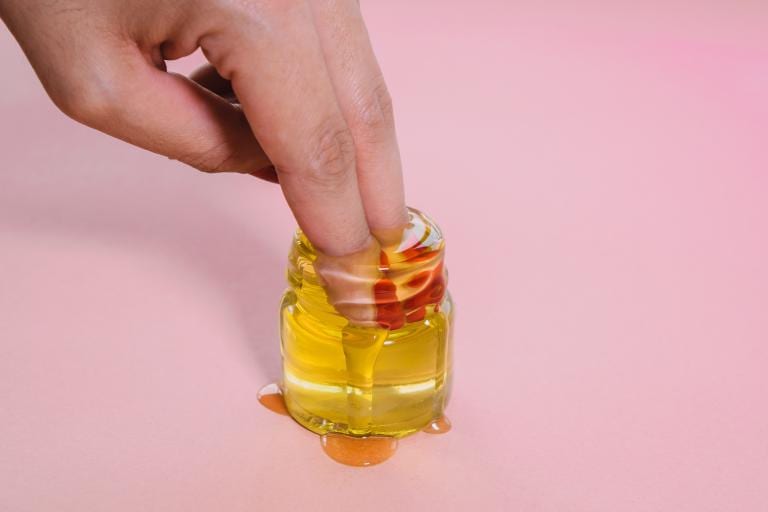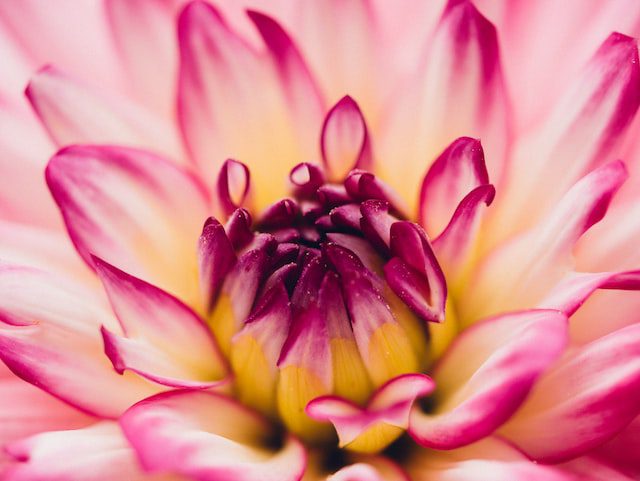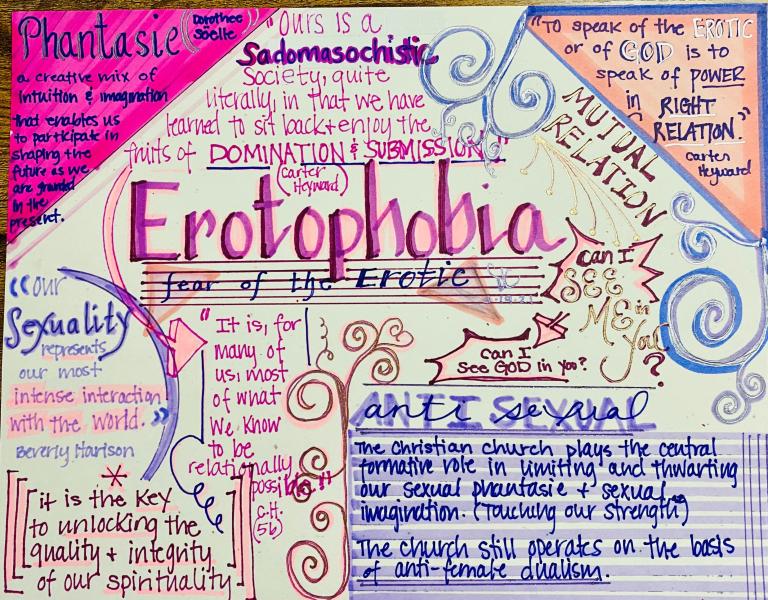
Photo by Malvestida Magazine on Unsplash
“If it isn’t in the Bible, then it’s not truth!”
This is one of the most common authoritative stances Christians take when anything is presented to us that makes us feel uncomfortable. If we can swish it away with some verses from scripture, we can righteously condemn it and be on our way. I think that’s exactly what people had hoped would happen with the Cardi B collaboration with Megan Thee Stallion for the song WAP, which premiered in early August 2020.
This is the latest dirty song with vulgar lyrics that apparently sets women’s progress back 100 years and proves that women no longer have a credible role model left. Never mind the thousands of other songs currently available (previously released without any attention at all) that use similar language. For now, let’s focus on what created the new orgasmic outrage, shall we?
I’d like to redirect to Proverbs and Song of Songs throughout. These are two inspirational books of the Old Testament that many are familiar with. What’s more interesting is how similar Cardi B’s lyrics are to the words we find in our very own Bibles. So, the point here is to show how Cardi B’s choice lyrics are actual biblically qualified. Why would I want to do that? Because the Bible is the Word of God, right? If we can find it in the Bible, it means it’s true, valid, justified, worthy of consideration, understanding, and above all, exempt from judgment. Or so I have learned from Bible thumpers who diligently select verses to condemn and shame something that simply rests uncomfortably in their own hearts and minds. So, let’s be optimistic, open-minded, and willing to laugh, shall we?
I jotted down some verses from Proverbs that really stuck out to me. Ones that I thought could be interpreted under a new lens, an erotic lens. If we look at these verses and consider that much of the advice here is metaphorical and allegorical, we can seek a new understanding out of them.
First, I want to point to a few verses that might make us check ourselves before we start hurling condemnation at women who declare they like wet vaginal canals. Their declarations are not unfounded. They speak from a lived-experience and a pleasurable one at that. The wisdom revealed in Proverbs is similar—lived experience passed on for understanding.
- Gold there is, and rubies in abundance, but lips that speak knowledge are a rare jewel. (20:15)
- Kings take pleasure in honest lips; they value one who speaks what is right. (16:13)
- Whoever gives heed to instruction prospers. (16:20)
- The heart of the wise make their mouths prudent, and their lips promote instruction. (16:23)
Informing men that women need lubrication is more than just knowledge, it is a gift! And thank goodness someone is bold enough to talk about this topic again. Albeit I am not sure Emily Nagoski, PhD. received this much heat after her articulation that wetness is a need and yet women struggle with arousal nonconcordance. This is a technical term that describes a delay in the system function in which a woman is mentally stimulated but physically shows no signs of lubrication. In her bestselling book, Come as You Are, she breaks down the physiological connections (and disconnections) that can occur but can also be remedied. Women depend on wetness for satisfying sex. If Nagoski can present on this topic at a TedTalk, why can’t Cardi B and Megan Thee Stallion present on this topic in a rap song? Why is it taboo to rap about but not lecture about? Why is the expression of female pleasure graphic when it comes to us by way of lyrics? I wonder if it’s easier for us to accept sexual discussions only so long as they come through the lens of science? Whereas the erotic lens remains reserved for that which we deem perverse, depraved?
Both Nagoski and Cardi B have provided instruction with their lips. Yet, we apply different weights to the standard of measure in their presentation. Neither presentation is all that “suitable” for young children. Such is why you don’t see children at TedTalks. Yet mothers and pastors aren’t calling for the censorship of Nagoski’s brand of instruction, only Cardi B.’s. Nagoski backed her presentation and instruction up with science. Cardi, with experience. Who’s right? Who’s wrong? Let’s say neither are either. They are just sharing what they know to be the truth.
Milk and Honey
Proverbs, as we know, is an anthology of wise sayings and practices. Again, if we are willing to read with an erotic lens, and we consider that the verses can be applied to all aspects of our lives, including and especially our sexual lives, we get a richer, deeper meaning out of the text. For instance, the passages on eating honey can be interpreted quite differently:
- Eat honey, my son, for it is good; honey from the comb is sweet to your taste. Know also that wisdom is like honey for you; If you find it, there is a future hope for you, and your hope will not be cut off.
(24:13-14) - If you find honey, eat just enough—too much of it and you will vomit. (25:16)
- One who is full loathes honey from the comb, but to the hungry, even what is bitter tastes sweet. (27:7)
If you are like me, you may begin asking yourself if the honey that is referenced in the preceding verses are literal or metaphorical. How can one be so sure, right? But what if we skip ahead a few books of the Old Testament and turn to Song of Songs? We find another reference to “honey,” but it’s obvious this is metaphorical, right? Isn’t that what everybody says about Song of Songs? It’s a metaphor! But a metaphor for what, exactly?
He: How much more pleasing is your love than wine, and the fragrance of your perfume more than any spice! Your lips drop sweetness as the honeycomb, my bride; milk and honey under your tongue, the fragrance of your garments is like the fragrance of Lebanon. You are a garden locked up, you are a spring enclosed, a sealed fountain. Your plants are an orchard of pomegranates, with choice fruits, with henna and nard, nard and saffron, calamus and cinnamon, with every kind of incense tree, with myrrh and aloes and all the finest spices. You are a garden fountain, a well of flowing water streaming down from Lebanon.
She: Awake, north wind, and come, south wind! Blow on my garden that its fragrance may spread everywhere. Let my beloved come into his garden and taste its choice fruits.
He: I have come into my garden. I have gathered my myrrh with my spice. I have eaten my honeycomb and my honey; I have drunk my wine and my milk.
(4:10-5:1)
Is it just a metaphor for a metaphor about sex? I realize many people insist that Song of Songs isn’t to be taken literally. I get that. I know my breasts are not twin gazelle. But how long are we going to push for this concept of metaphors when, if we are applying a lens of eroticism, there’s no way to deny what the metaphors are really about. It’s about sex and all the fluids, stickiness, wetness, and creaminess that goes along with it. And it could represent anything good and beneficial in your life. That’s what an erotic lens does for reading the Bible. It allows the message to be more fluid so that it can be applied to all aspects of your lives.
So, how shall we define honey? What if we consider that the encouragement to eat honey means that we are to taste and experience pleasure and delight when we can because it is good for us? What if milk and honey are symbolic of that which are natural and spiritual? What’s more natural than sex? What’s more spiritual than sex?
We see a reference to milk and honey in Isaiah as well. Milk and honey are presented as benefits, gifts, abundance, sustenance.
Therefore the Lord himself will give you a sign: the virgin will conceive and give birth to a son, and will call him Immanuel. He will be eating curds and honey when he knows enough to reject wrong and choose the right, the land of the two kings you dread will be laid waste… (7:14-16)
And also:
In that day, a person will keep alive a young cow and two goats. And because of the abundance of the milk they give, there will be curds to eat. All who remain in the land will eat curds and honey. (7:22)
But of course, Exodus speaks about the holy ground reserved for the Israelites of Egypt with reference to the same elements: milk and honey.
The Lord said, “I have indeed seen the misery of my people in Egypt. I have heard them crying out because of their slave drivers, and I am concerned about their suffering, So I have come down to rescue them from the hand of the Egyptians and to bring them up out of that land into a good and spacious land, a land flowing with milk and honey—the home of the Canaanites… (Exodus 3:7-8)
Milk and honey are both natural creations and both represent the symbolism behind the treasures and pleasures of the earth and spirit. Water and wetness symbolize birth, creation, and energy. Throughout the Bible, the lack of honey or the taking away of honey (and curds) seems to be really important. Honey and milk seem to represent life!
The truth is, a woman doesn’t really carry milk and honey under her tongue, as mentioned in the Songs verses, but if we really reflect on this image, as a woman, I can see why “milk and honey” might be a euphemism. Can you? Ask me where the milk flows from? My breasts. Notice also, my breasts give life to my children. Milk = life.
And the honey and the honeycomb? We travel further south, to the nether regions of what is commonly known as the vagina. Nagoski remarks, however, that we have been calling this the wrong term all along, and in fact, it’s a vulva. Cardi’s take relies on the more colloquially recognized term “pussy” but the effect is the same. Guess what else comes by way of the vaginal canal? Life!
“The fragrance of your garments” is easily recognized as “the smell of you.” A woman’s scent lingers. It can linger across the table, filling the room.
While my king was at his table, my perfume spread its fragrance. My beloved is to me a sachet of myrrh resting between my breasts. My beloved is to me a cluster of henna blossoms from the vineyards of En Gedi. (Song of Songs, 1:12-14)
A woman has a taste as well, and a man knows it. To him she tastes like honey, like wine, like sweet nectars of the finest fruits.
I have come into my garden. I have gathered my myrrh with my spice. I have eaten my honeycomb and my honey; I have drunk my wine and my milk. (Song of Songs, 5:1)
Translated colloquially, you don’t have to stretch the imagination too far. Cardi’s articulation is similar:
“I don’t wanna spit, I wanna gulp, I wanna gag, I wanna choke.”
Blow on my garden that its fragrance may spread everywhere. Let my beloved come into his garden and taste its choice fruits. (Song of Songs, 4:16)
Cardi B. says it slightly differently:
“I want you to park that big Mack truck right in this little garage”
Ultimately, Cardi B, Megan The Stallion, Nicki Minaj, Missy Elliot, H.E.R., Beyonce’, Foxy Brown, Lil Kim, and every other artist who has ever put poetry to passion, has essentially taken biblical verses and reframed them to fit into today’s modern context. And we refuse to acknowledge that initially because that means we might have to confront something else. Maybe our own insecurities and limitations?
Things that make us uncomfortable usually inspire us to think deeper about our responses if we are paying attention. When we are uncomfortable, that means there is much development that awaits us. It’s rather interesting that there is this collective uncomfortableness with the idea of female ejaculation. Nagoski speaks to this topic.
…Our culture sends mixed messages to women about their genital fluids…or lack thereof. On the one hand, ejaculation is viewed as a quintessentially masculine event and women’s genitals are, ya know, shameful, so for a woman’s body to do something so emphatic and wet is unacceptable…
The biological message is simple: Female ejaculation is a byproduct, like male nipples and the hymen. No matter how big a deal culture makes of it, women vary…but this brings me to an important point about genitals: They get wet sometimes, and they have a fragrance. A scent. A rich and earthy bouquet, redolent of grass and amber, with a hint of woody musk. Genitals are aromatic, sometimes, and sticky sometimes, too. Your genital secretions are probably different at different phases in your menstrual cycle, and they change as you age, and they change with your diet—women vary…
If you don’t find the smell or sensation of genital wetness to be completely beautiful and entrancing, that’s unsurprising given how we teach people to feel about their genitals. But how you feel about your genitals and their secretions is learned, and loving your body just as it is will give you more intense arousal and desire and bigger, better orgasms.”
(Come as You Are, 31-32)
We learned to reject the ideas about celebrating women’s wetness along the same lines that we learned to reject most of everything related to the feminine form. It’s secondary, not as important, and sometimes, irrelevant altogether. So, when someone like Cardi B. comes along and makes an irrelevant topic relevant, like lady lubrication, society responds with relevant fears and criticisms because their comfort has been distorted, if even temporarily. But I don’t recall too much noise in any of the guided sermons on Song of Songs that infiltrate the churches week after week. Do you? Our pastors and preachers preside over us and read aloud similar lyrics and we think, “isn’t that beautiful?!”
It seems to me that Solomon was entranced by the scent and wetness of his lover. Did you notice the fragrance he describes in the preceding verses are like the way Nagoski articulates the scent of a woman? Megan Thee Stallion understands unequivocally, that a man appreciates her scent, which is why she says this:
“Extra large and extra hard
Put this pussy right in your face
Swipe your nose like a credit card” (WAP , Verse 1)
Remember that verse from Proverbs earlier?
Eat honey, my son, for it is good; honey from the comb is sweet to your taste. (24:13)
Or, as Cardi B. recognizes:
“He got a beard, well, I’m tryna wet it
I let him taste it, now he diabetic.” (WAP, Verse 3)
That honey is sweet to the taste, so sweet, in fact, it’s overwhelming. Why is it that we don’t find the lyrics of Solomon’s song too explicit, but we do with Cardi B. even though the context is the same? Why don’t we understand the metaphor of Cardi’s words as readily as we do from the words of Proverbs? Is there not both an appreciation and celebration of the honey in all regards? If we read both the WAP lyrics and Song of Songs, we see they are articulating an expression of the same act: S-E-X. Yet, we happily accept a double standard. Why?
There are many double standards when it comes to sexuality. Men are allowed to be loudly vocal about how the sight of her ass made his dick hard, but women are not allowed to reciprocate the same praise about how wet and gushy she gets when he hooks her with his king cobra. Solomon can talk about oral sex, but any rapper that does is clearly without God.
We can express the importance of labia lubrication from scientific terms, but not from musically artistic terms. Even in the allowance of the distinction, some insist, like Russel Brand did, that these women are simply jaded by patriarchal programming and that what they think they want to express for themselves is simply man’s original depravity and she should want more for herself, that is her own. From my understanding, it seems to me that if women resonate with Cardi B.’s lyrics, they are simply confused about what they want.
Obviously, I am not going to convince everyone that there is truth behind the graphic language of any rapper, but I believe that if we are going to challenge the way we talk about human sexuality, desire, and what it is that we like and don’t like, want and don’t want; we must stop feeling victimized and terrorized by words that resound in the same joy and celebration as the writers of the text we deem Holy.
A simple practice of Pause! Ponder! Praise! might be effective in guiding us to be more open to the same ideas that we contend reveal God to us. Cardi B’s lyrics aren’t by any means “clean” or “kid-friendly.” But neither is the Bible.












